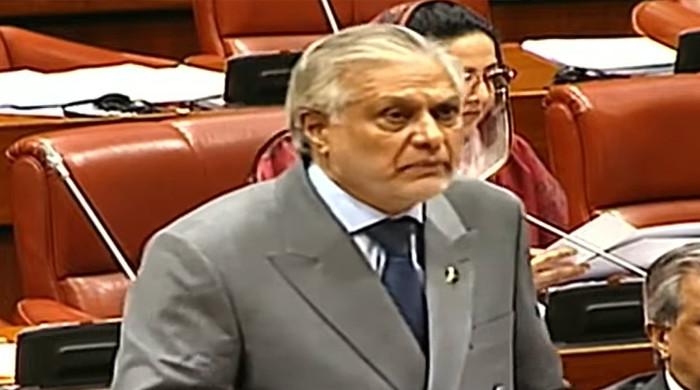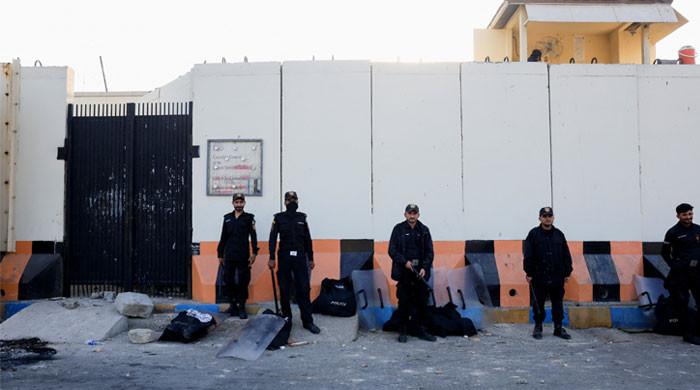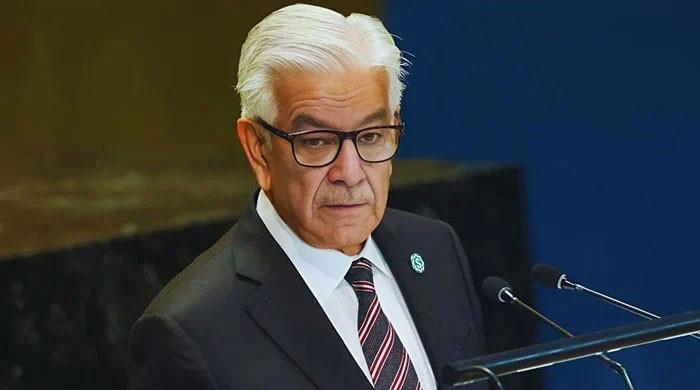Govt seeks stay on Supreme Court's army chief extension ruling
Supreme Court on Nov 28, 2019 had allowed the federal govt to grant only a six-month extension to the COAS
January 02, 2020
ISLAMABAD: The federal government on Thursday sought a stay order from the Supreme Court against its November 28 verdict in the army chief extension of service case.
The government in its plea requested the apex court “to accept the application and suspend/stay the operation of the impugned judgment dated November 28, 2019, in the interest of justice".
This is the second petition filed in this high-profile case by the government.
On December 26, the law ministry had approached the top court against its detailed judgement, issued on December 16, in which the federation was ordered to legislate on the matter within six months.
The petition filed today prayed to the court that "The petitioners have a strong prima facie case to succeed; hence the operation of the impugned judgement may be suspended/stayed till the final decision of this civil review petition."
It further stated that the "balance of convenience lies in favour of the petitioners" and if the "injunction as prayed is not granted, the petitioners will suffer irreparable loss.”
The plea asked the chief justice to "constitute a larger bench comprising five judges so as to hear the review petition.”
In its previous petition against the detailed order, the government had pleaded the court to keep the proceedings in-camera.
The petition further argued that the top court’s verdict did not take into account "important constitutional and legal" points. It further stated that the apex court has itself "been giving extensions to additional and ad-hoc judges", making a case for the government to exercise this discretion as well.
Read also: Govt files review petition in army chief extension case
PM to be formally empowered to grant extension
The federal cabinet in an emergency meeting on Wednesday had accorded its approval to an amendment in the Army Act under which the prime minister will be empowered to extend the tenure of all services chiefs.
The bill pertaining to the amendment will be tabled in the National Assembly tomorrow (Friday).
Read also: Cabinet approves amendment to Army Act
The amendment has been prepared according to the guidelines enumerated in the Supreme Court's verdict.
Detailed verdict
In its short order, released on November 28, the top court had allowed the federal government to grant a six-month extension to Chief of Army Staff (COAS) General Qamar Javed Bajwa.
The SC had on December 16 issued its detailed verdict on the extension matter.
In the verdict, penned by Justice Mansoor Ali Shah, the court had stated that the SC bench "explored the scope of Article 243 of the Constitution, reviewed the Pakistan Army Act, 1952 and the Pakistan Army Act Rules, 1954".
The court "found that the Pakistan Army Act, 1952 fell deficient of the structural requirements for raising and maintaining an Army under clause (3) of Article 243 of the Constitution".
The verdict noted that "no tenure or age of retirement for the rank of General is provided under the law. As per institutional practice, a General retires on completion of a tenure of three years. Although an institutional practice cannot be a valid substitute of the law."
Read also: SC permits govt to extend COAS General Bajwa's tenure by six months
"There is no provision in the law for extending service of a General for another tenure; nor is there any consistent and continuous institutional practice of granting such extension," Justice Shah wrote, adding that the summaries for the reappointment, extension and fresh appointment of General Bajwa were "meaningless" in absence of the relevant law.
The verdict further stated that in the light of the attorney general's assurances as well as the importance of the responsibilities of the COAS, it would allow that the incumbent COAS continue for a period of six months.
However, the court had warned that in the absence of legislation on the matter within six months, the institutional practice of retirement of a General on completion of the tenure of three years shall stand enforced.











